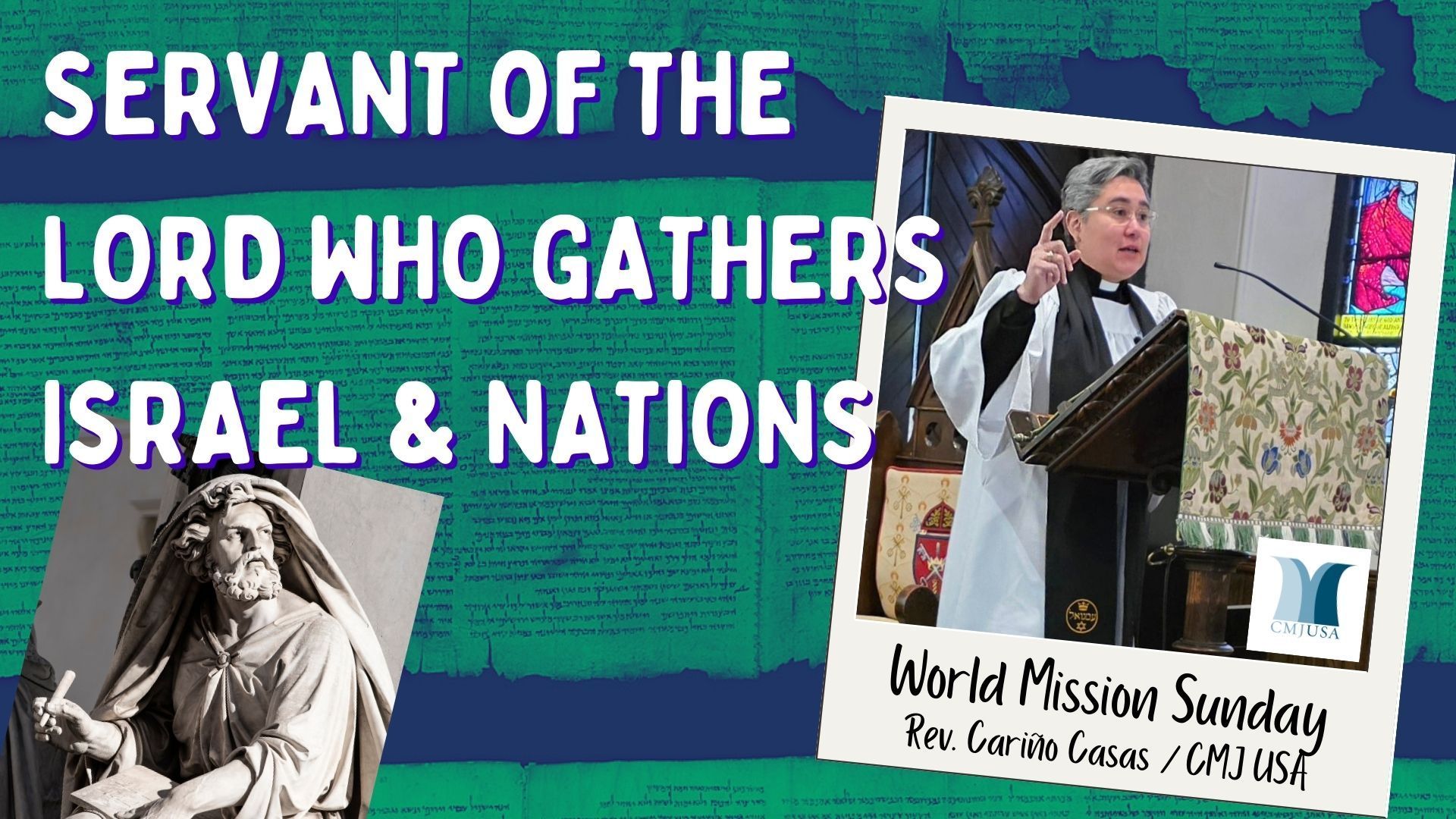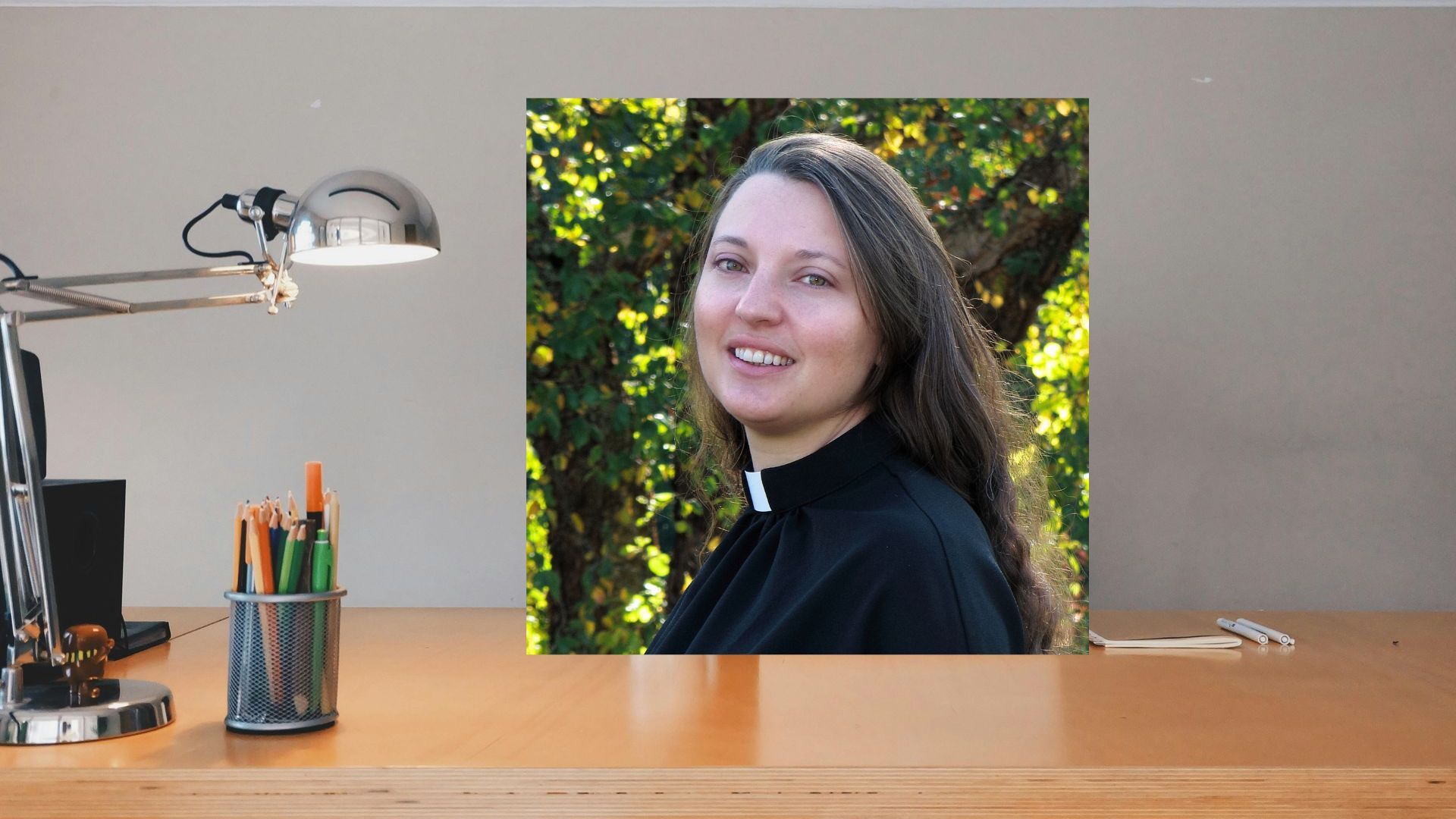Pentecost: The Redemption of Babel
God mercifully, consistently steps in to break our sin cycle
Preached at Christ Church Jaffa in Israel on the Day of Pentecost 2025.
Genesis 11:1-9
Psalms 104:24-35
Acts 2:1-21
John 14:8-17
Come, Holy Spirit!
The Holy Spirit is come! Hallelujah!
On Pentecost Sunday. We celebrate the day God poured out his Holy Spirit on all flesh. It is the day when he writes Torah on our hearts, as promised in Jeremiah 31. It is the day God begins to knit Jew and Gentile into the one new humanity as foreshadowed by the story of Ruth and Boaz.
The day's Tanakh reading takes us back near the beginning, to the prologue in Genesis. Genesis 1-11 is the introduction to God’s telling of the human story in the 66 books we call the Bible.
In this introduction, God creates humanity to invite us into eternal fellowship with him. Humanity instead follows its pride. Humanity rejects being with God because it thinks it can be god.
The sin of pride has consequences. But God, who tells Moses his character is always to have mercy (Exod 34:6-7), steps into our sin cycle and offers us mercy.
Genesis 1-11 shows this cycle of human sin and consequence sprinkled with God’s mercy four times.
- Don’t eat from the one tree, God tells Adam and Eve. The serpent stokes their pride and says they can be like God. Eve and Adam eat from the one tree and realize their nakedness before God. God kicks them out of the Garden home he made for them, but first, he covers their nakedness.
- Cain murders his brother out of prideful envy. God sends Cain away from his presence, but with a merciful mark so that he will not be killed.
- Humanity and “the earth [were] filled with violence.” God cleanses the whole planet with a flood, mercifully keeping safe Noah, his family, and the animals needed to repopulate the earth.
Our Genesis 11 reading gives us the fourth repetition of this sin-mercy cycle.
Noah’s descendants are told to fill the earth. But the 70 families (Gen 10) that come from Noah decide to stay in Mesopotamia, specifically in the Shinar plain. That would geographically be in modern day Iraq today.
4 …they said, “Come, let us build ourselves a city and a tower with its top in the heavens, and let us make a name for ourselves, lest we be dispersed over the face of the whole earth.” (Gen 11:4)
The sin is not in the building. Neither does it say that they were trying to reach God. They do say two sinful things, though:
- Let us make a name for ourselves
- Lest we be dispersed over the face of the whole earth
The sins of Babel are pride and rebellion. Let’s define these two words.
- Pride is thinking more of ourselves than we really are. It’s self-esteem that is unreasonable, excessive, out of order. It is self-exaltation that tramples on others.1
- Rebellion is simply disobedience. It’s not doing what God told us to do or doing what God told us not to do.
Four times God tells his created humans to spread out and fill the earth.
- Genesis 1:27: So God created man in his own image … male and female he created them. 28 … And God said to them, “Be fruitful and multiply and fill the earth.”
- Genesis 8:16: Noah, “Go out from the ark, you and your wife, and your sons and your sons' wives with you… 17 and be fruitful and multiply on the earth.”
- Genesis 9:1: And God blessed Noah and his sons and said to them, “Be fruitful and multiply and fill the earth.”
- Genesis 9:7 And you, be fruitful and multiply, increase greatly on the earth and multiply in it.”
We see in Genesis 10 that Noah’s three sons have multiplied into 70 families. They have been fruitful and multiplied. So they got half the command right. The other half was “fill the earth.”
The rebellious response of these 70 families is “let us build… lest we be dispersed over the face of the whole earth.”
Said another way [like a spoiled child]: We don’t want to fill the earth! Waaaaa! Let’s play with our blocks instead and show everybody how good we are with our building blocks. Waaa!
This is a classic rebellion move. How many times, as children, did we tell our parents, “No, I don’t want to do that, but I’ll do this instead.” “I don’t want to clean my room but let me show you how good I am at playing this video game.” Why do we think we can negotiate our obedience?
We are created beings. We did not make ourselves. We are made by God in the image of God. God made us with physical strength and mental strength. We are intelligent. God also gave us the ability to create, to build, to make. It feels to good to create. It may even feel good to destroy.
Go to the beach and watch a child (or an adult) build a sand castle. They may take care to build walls and towers. If they are good at packing sand, they may build higher. They look at it and call it good.
Then, they or maybe a trouble-making brother or sister may come and smash it. They stomp around breaking walls and knocking over towers. Maybe they even do an evil laugh: Mwhahaha.
For a moment, when we build, when we destroy, we may feel like gods. That is the bad pride, the pride that makes a name for ourselves and makes us forget that we are created beings that breathe only by the will of God.
The Bible, particularly the Proverbs, is full of warnings about pride:
- Proverbs 11:2 – When pride comes, then comes disgrace, but with the humble is wisdom.
- Proverbs 16:18 – Pride goes before destruction, and a haughty spirit before a fall.
- Proverbs 29:23 – One's pride will bring him low, but he who is lowly in spirit will obtain honor.
God hates pride, but he loves his creation more.
Like in the previous sin-consequence-mercy cycles, God steps into the Tower of Babel situation. He judges their rebellion by confusing their languages so they can no longer cooperate in their rebellion. The mercy is that all these people finally obeyed God’s command to fill the earth as they moved in their language groups away from Babel. God is merciful even in his judgment as his judgment is often designed to call us to repentance and restoration.
After the Fall in Eden and after the Flood, God in his mercy also gave promises of hope:
- After Adam and Eve rebelled, God promised that the seed of the woman would crush the serpent. (Gen 3:15)
- After the Flood, God made a covenant with all creation that he would never again destroy the earth in a flood. (Gen 9:8-17)
Is there a promise after the Tower of Babel? Yes!
After God scatters the nations in chapter 11, he calls Abraham in chapter 12:
1 Now the Lord said to Abram, “Go from your country and your kindred and your father's house to the land that I will show you. 2 And I will make of you a great nation, and I will bless you and make your name great, so that you will be a blessing. 3 … in you all the families of the earth shall be blessed.”
What families will God bless through Abraham? The 70 rebel families scattered from Babel.
So God steps into the rebellion at Babel, he mercifully confuses the languages so that the people will obey the command to fill the earth, and he promises to bless all the peoples of the earth through Abraham.
Shavout = Pentecost
Last week, those of us who follow the Hebrew calendar celebrated Shavuot, the Feast of Weeks. Greek-speaking Jews, like Josephus and Philo, called the festival Pentecost. Described as a harvest festival in Leviticus 23, it now celebrates the giving of the Torah, the life of King David, and the story of Ruth.
In Acts 2 we read, “When the day of Pentecost arrived, they were all together in one place.” Before his ascension, Jesus told the disciples to wait in Jerusalem for power from on high.
Did they just wait for 10 days, wondering when God would act? Or had they noticed that Jesus died on Passover and resurrected on the Feast of Firstfruits? God gave Torah on Shavuot. Might this power from on high also come on the next biblical holiday?
Perhaps somebody remembered the promise of Jeremiah 31:
31 “Behold, the days are coming, declares the Lord, when I will make a new covenant with the house of Israel and the house of Judah 33 …I will put my law within them, and I will write it on their hearts.
At Sinai, God wrote his Torah on stone tablets. At Jesus’ last Passover seder, he said the cup represented the new covenant. So might God write Torah on the hearts of his people on Pentecost?
2 And suddenly there came from heaven a sound like a mighty rushing wind, and it filled the entire house where they were sitting. 3 And divided tongues as of fire appeared to them and rested on each one of them. 4 And they were all filled with the Holy Spirit and began to speak in other tongues as the Spirit gave them utterance.
How many of you have seen the old Cecil B. Demille movie The Ten Commandments? It still holds up pretty well 70 years later. When God speaks the 10 Commandments, the film depicts fingers of fire flying around the mountain and the camp before the finger of God engraves the commandment on the stone tablet. Where did they get that?
In Exodus, God speaks to Moses in the thunder (Exod 19:19). And it says that “the people saw the thunder” (Exod 20:18). Not the lightning but the thunder. The people saw the voice of God. The rabbis imagined this as fire, even saying that God’s voice went out in 70 languages so that all the peoples of the earth could receive God's instruction.2
In Acts, the Jesus followers – men and women – also see the voice of God as tongues of fire and proclaim his praise so that nations will hear the Good News that Jesus the Son of David has died and resurrected to save the rebellious nations from their sin.
Jews and Gentile converts from around the Mediterranean heard the Gospel in their own language: “Parthians and Medes and Elamites and residents of Mesopotamia, Judea and Cappadocia, Pontus and Asia, Phrygia and Pamphylia, Egypt and the parts of Libya belonging to Cyrene, and visitors from Rome, both Jews and proselytes, Cretans and Arabians.” (Acts 2:9-11)
According to today’s map, worshipers from these areas heard the disciples speaking in their own languages: Iran, Kurdistan, Iraq, Syria, Israel, Turkey, Armenia, Azerbaijan, deeper into Asia, Egypt, Libya, Italy, Greece, Saudi Arabia, maybe even Spain and further into North Africa.
It’s not the undoing of Babel. It’s the redemption of Babel. God confused the languages so that the rebels would obey his command to fill the earth. Now God empowers a group of Galilean Jews to speak the Good News of the Messiah to the scattered nations of the earth.
17 “‘And in the last days it shall be, God declares,
that I will pour out my Spirit on all flesh,
and your sons and your daughters shall prophesy…
18 even on my male servants and female servants
in those days I will pour out my Spirit, and they shall prophesy.
Prophesy what? That the blessing of the nations through Abraham has begun in earnest. That the only begotten Son of God has stepped into our sin-cycle to work for us mercy. The Seed of the Woman has crushed the serpent. The Lamb of God clothes our nakedness. He’s opened the way for us to return to the Garden where we can live and commune with God.
But we must leave our pride and rebellion behind.
In John 14, as Jesus is preparing his disciples for his death, he tells them
15 “If you love me, you will keep my commandments. 16 And I will ask the Father, and he will give you another Helper, to be with you forever, 17 even the Spirit of truth, whom the world cannot receive, because it neither sees him nor knows him. You know him, for he dwells with you and will be in you.
God has written his Torah on our hearts. We show our love for God by obeying his commandments. He commands us to lay down our pride and love our enemies. He invites us to pick up our cross and follow him, imitate him as a Suffering Servant.
Jesus had gentle words for the oppressed and harsh words for the oppressors. But his final word for those who turned him over and for those who killed him was, “Father, forgive them for they know not what they do.” Does the Father hear the Son’s intercession? The answer is YES. Jesus ever intercedes for all humanity before the Father. That intercession was happening even on the cross. “Father, forgive them.” Forgiveness is another action he calls us to imitate.
You from the nations. Hear the word of the LORD today:
Your rebellion is forgiven. The devil, the enemy of our souls, is defeated. Lay down your pride then come to the table to feast with your God.
Let us pray.
Avinu, Father, teach us to depend on you for all things – things physical, spiritual, emotional. Teach us to lay down our pride and our rebellion. Help us to imitate Jesus, who laid down his majesty to reconcile the nations to yourself. Let your Spirit go forth and renew our hearts and the face of the earth. In the name of the Father, Son and Holy Spirit. Amen.
Footnotes
- F. Duane Lindsey, “Pride,” in The Wycliffe Bible Encyclopedia, ed. Charles F. Pfeiffer, Howard F. Vos, and John Rea (Moody Press, 1975).
- Shemot Exodus 5:9.
Blessed by this post? Ready to sow into the work of CMJ? No gift is too small. we are blessed by your partnership.



